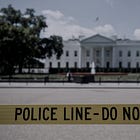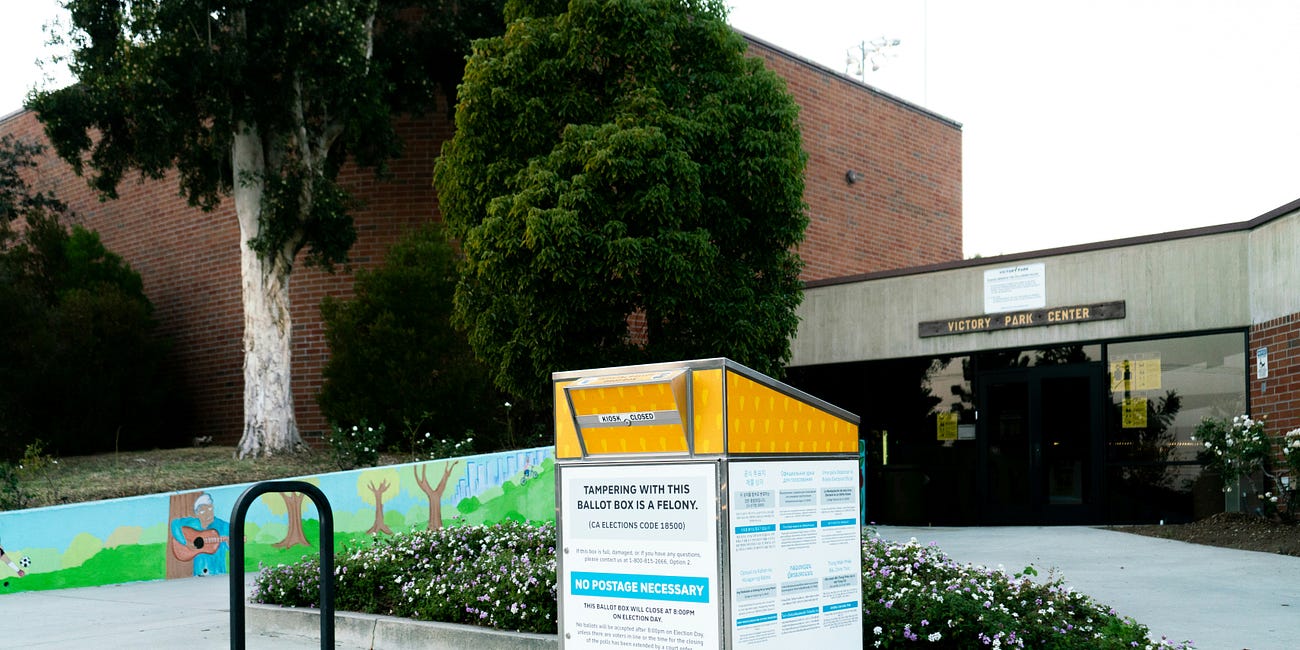Russia's Playbook For How To Steal An Election, Part 1
Update #4 | We're at war, and Russia is on the cusp of a decisive victory.
If you haven’t read these posts,
I highly recommend reading them first ↓
Update #4
I wrote briefly last night about how Russian interfered with Moldova’s election, but there’s more to say about the topic of Russian efforts to influence Western nations.
To be able to understand the 2024 U.S. Election (and how it was stolen), it’s helpful to be able to view it in an international context. This wasn’t an isolated incident of Russian meddling. In fact, it’s become par for the course for all Western democracies.
That’s because we’re currently at war:
The Hybrid War
Contrary to the popular aphorism that starts each of the Fallout video games (“War, war never changes…”), war is waged differently now than it used to be.
Our soldiers no longer wear brightly colored wool coats, stand in formation, and fire musket volleys at the enemy. But they might as well still be doing that if the U.S. national security apparatus isn’t prepared to defend against Russia’s attacks using their modern, evolving methods.
Russia doesn’t want a direct shooting conflict (also known as a “kinetic” war) against the U.S. or our North Atlantic Treaty Organization (NATO) allies, but still wants to advance its foreign interests. It does this through every conceivable method of sowing chaos that it can use, up to—but just short of—an actual kinetic operation.
NATO Secretary General Jens Stoltenberg described it this way, in June:
We are threatened by something which is not a full-fledged military attack, which are these hybrid threats … everything from meddling in our political processes, (undermining) the trust in our political institutions, disinformation, cyber-attacks (…) and sabotage actions against critical infrastructure.
This includes funding international terrorism, using propaganda to whip up civil unrest or undermine trust in democracy, arranging and transporting massive groups of migrants to claim asylum to overwhelm a nation’s resources, and huge illegal operations to influence and steal elections.
Russia has ties to far-right extremists in many Western nations, including all over Europe. The Center for Strategic & International Studies describes these operations as such:
Russia has ties to numerous far-right organizations, some of which are violent, and has provided them with money, limited training, encouragement, and other support. In addition, Russia has long flooded Europe with disinformation, trying to bolster pro-Russian far-right parties, worsen preexisting tensions around contentious issues such as immigration, and undermine institutions, particularly confidence in elections. Most menacingly, Russia has stepped up sabotage in Europe as payback for European support to Ukraine.
These hybrid operations have only intensified alongside the Ukraine War, including campaigns of arson in Poland, sabotage of subsea cables in the Baltic Sea, assassinations of political dissidents, and recent plans to plant bombs on cargo planes. There are too many Russian plots to list.
But while the impacts of many of these operations are limited in scope, Russia has also made substantial efforts to manipulate politics in European nations. Russian money influenced the passing of Brexit in the U.K. and funded the rise of authoritarian, anti-immigrant, anti-globalist, nationalist populists in Hungary, Poland, the Netherlands, France, Germany, Finland, Sweden, and Austria.
Does that platform sound familiar?
Russian influence on the Trump campaigns
There’s little that Russian leader Vladimir Putin wants more than to end NATO/the American hegemony of Europe, and end American democracy. Donald Trump, our own authoritarian, anti-immigrant, anti-globalist, nationalist populist, is his man to achieve that goal (and has been an asset since the 1980s!).
In 2015, early in his first successful presidential campaign, Trump and his lawyer, Michael Cohen, worked with Russian-born real estate developer and mobster Felix Sater on a business deal to build a Trump Tower project in Moscow. In emails later published by The Washington Post and The New York Times, Sater promised to “get all of Putin's team to buy in” on the proposed Moscow plan and said, “Buddy, our boy can become president of the USA, and we can engineer it.”
And they did.
Special Counsel Robert Mueller’s investigation later concluded that Russian operatives from the Russian government’s military intelligence agency (GRU) conducted extensive cyber operations to influence the 2016 election. This included the hacking and releasing of emails from the Democratic National Committee (DNC) and high-level campaign staff of his Democratic opponent, Hillary Clinton.
The DNC/Clinton campaign email hacks happened only hours after Trump publicly asked Russia to hack and release her emails during a July 27, 2016 news conference: “Russia, if you’re listening,” he said, “I hope you’re able to find the 30,000 emails that are missing, I think you will probably be rewarded mightily by our press.”
The hacked emails were later published through outlets like WikiLeaks. He was still elected president that November.
The Mueller Report also detailed how Russian-run “troll farm” Internet Research Agency (IRA) ran social media campaigns designed to sow discord, create confusion, and energize political divisions within the U.S., while favoring Trump and discrediting Clinton. Twitter made policy changes to combat Russian misinformation, which were only undone before the 2024 election after Russian oligarchs funded Elon Musk’s buyout of Twitter. Renamed X, the popular social media site has since become a hotbed of MAGA influencers and disinformation.
Charles McGonigal, head of counterintelligence for the FBI's New York office, was a central figure in the investigation. His team reported that they could find no evidence of a criminal conspiracy between the Trump campaign and Russia to influence the 2016 election outcome. Perhaps unsurprisingly, he later pled guilty on charges he secretly worked for the Russian oligarchs he had supposedly been investigating.
Trump was elected in November 2016 with Russia’s help. The Senate Intelligence Committee conducted its own investigation into Russian interference in the 2016 U.S. presidential election. Despite the Committee proving the Trump campaign’s collusion with Russia was very real, Trump was never charged with a crime for his collusion with Russia during that campaign.
Donald Trump didn’t just steal the election, he stole America’s future. And it will stay that way unless we do something about it.
Please take ten seconds to share this article and help us get the word out!
With democracy at stake, isn’t this election worth double-checking?
And yes, Russia did again seek to help Trump in his unsuccessful 2020 reelection bid, according to a 2021 report by the U.S. intelligence community. During Trump’s 2020 campaign, Russia stoked mistrust in the electoral process by attacking mail-in voting, exaggerating supposed irregularities, and accusing the Democratic Party of voter fraud. Trump's promotion of the "Big Lie" regarding the 2020 election results further amplified these Russian efforts, contributing to enduring skepticism among voters about the integrity of election outcomes.
The MAGA extremism and election denialism that culminated in the insurrection at the U.S. Capitol on January 6, 2021, would have never happened without the misinformation and division spread by Russia.
Now, in 2024, Russia’s hands continue to be all over the MAGA movement, Trump campaign, and associated conservative organizations. There’s a vast, endless web of connections between Donald Trump, the Kremlin, and a host of Russian oligarchs. The connections are even more direct than the chart below indicates—Trump even had unprecedented, unexplained hours-long meetings with Putin during his presidency.
Caption: Image courtesy of Rep. Eric Swalwell; https://swalwell.house.gov/issues/russia-trump-his-administration-s-ties.
Trump and Putin kept in contact after Trump left office, continuing their bromance with as many as seven private calls. Don’t worry, though! He’s not alone; Elon Musk has been in regular contact with Putin for the last two years, too. Keep in mind that, for good reason, it’s illegal for an American citizen to negotiate with a foreign government without prior approval.
All in all, there’s no question that Trump has been compromised by Russia and is a foreign asset. There’s also no question that Russia helped Trump to get elected in 2016, tried to in 2020, and was now again successful in 2024.
Look at all the money and effort Russia has put into propping Trump up. Look at the long list of crimes Trump and his Russian allies are willing to commit to further their goals. If they had an opportunity to hack voting machines and change the votes, do you really think they’d pass on it?
Of course not.
In my initial post, we already went over that the Trump team gained illicit access to voting machines and software after the 2020 election.
They had the opportunity. So the hack must be real.
Click here to read Part 2:
Subscribe to stay informed. This is a developing situation, and I’ll continue to report on it. There are so many other data points to discuss and analyze that will supplement the insights above. Watch your email for more.
If you have relevant information to contribute, please email: tinfoilmatt@proton.me
Read the previous update:
More Bomb Threats Cause California, Maryland Elections Office Evacuations
Update #3 | Why send threats after the election, outside of swing states?








